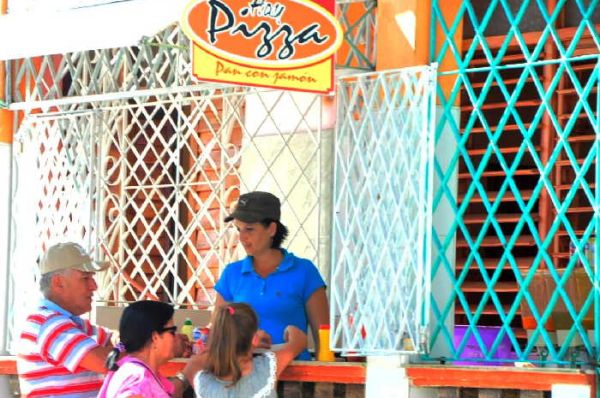
These regulations, which will come into force next December 7th, are endorsed in six higher-ranking regulations, five decree-laws, a decree and 14 complementary resolutions
The Extraordinary Official Gazette number 35 publishes this Tuesday the new regulations for the exercise of self-employment in Cuba, that was allowed in 2011 after being frozen for several years and that provides employment to almost 600 thousand Cubans
These regulations, which will enter into force within 150 calendar days (December 7), are endorsed in six higher-ranking regulations, five decree-laws, a decree and 14 complementary resolutions of the ministries involved in their implementation.
According to Resolution number 12 of the Ministry of Labor and Social Security (MTSS), as a result of the changes there are now 123 kinds of licenses, in contrast to the 201 previously existing.
In a press conference, Marta Feitó, first deputy Minister, specified that 96 types of licenses that were related among them, where unified into 28, for example, those related to beauty services and the repair of assorted items.
She said the government will release the granting to new applicants of the 27 kinds of licenses that were frozen since last year, such as those for renting homes, rooms and spaces, gastronomic service in restaurants, private contractors and dressmakers or tailors.
Among the novelties, it is worth noting that licensees may only carry out one activity, and in order to request permission, they must submit a written description of the desired business and the place to establish it, as well as declaring in certain cases the source of financing, among other requirements.
The category of food and beverage producer-seller through gastronomic services in restaurants was modified, with the emergence of bar and recreation services, as well as gastronomic services in restaurants.
Feitó explained that no more than one of these services will be authorized in the same legal address, and that the figures of baker and lessor of means of transport will also be included.
She ratified that in the future no licenses will be issued for wholesalers and retailers of agricultural products, operators of recreation equipment, purchasers and sellers of records, since in these activities they have detected facts that constitute crimes.
Among the good news is that it will empower the holder of the license who has hired workers and needs to be absent due to prolonged illness – of himself or family members under his responsibility – or for leaving the company, the possibility of appointing one of the employees to assume the fulfillment of his duties.
The activity of renting homes, rooms and spaces will include food service, as well as being able to provide services to legal entities, a benefit established in Decree 353, which amends the General Law of Housing.
According to Feitó, after the regulations come into force, the licensees will have up to 90 days to adjust their business to what is indicated, and before that date they will be trained, as well as the representatives of the agencies involved in this process.
The new regulations will be disseminated in digital format and two million copies of the Official Gazette will be gradually printed and sold in the newsstands throughout the country, although they will be distributed free of charge to the self-employed.
According to the Feitó, the current changes respond to the announced process of improvement of this form of employment, aimed at correcting deficiencies and ensuring that the private work continues to progress in an orderly manner.
She added that there are measures that respond to request from the self-employed themselves, while others improve the exercise and control of the activity.
Self-employment,” she said, “is recognized in the guiding documents of the current socio-economic transformations, which is why it is the will of the State to continue developing it, especially when it has brought, among other benefits, an increase in the quality of goods and services, in addition to facilitating the process of reordering work.
As of last May, there were 591,456 self-employed people in Cuba,
representing 13 percent of those employed in the country.
 Escambray ENGLISH EDITION
Escambray ENGLISH EDITION





Escambray reserves the right to publish comments.